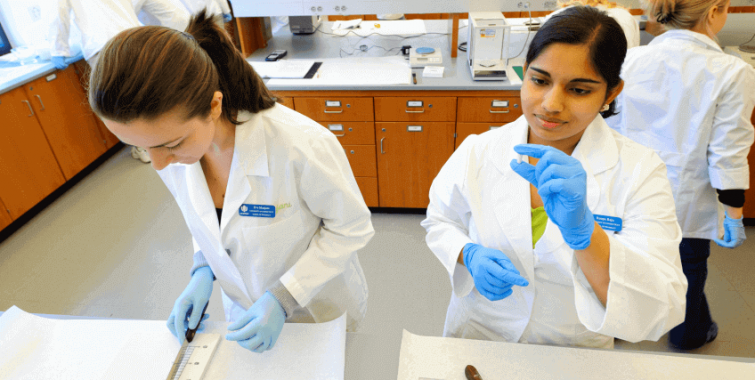5 Ways to Evaluate Pharmacy Internships

Pharmacy internships are wonderful opportunities for pharmacy students. Not only are you able to distinguish yourself from other students, but you can begin to understand the array of exciting and diverse career paths within pharmacy. For prospective pharmacy students, hands-on clinical experience and shadowing current pharmacists will be both helpful and eye-opening.
 You may be wondering, “How do I find out about pharmacy internships?” Having completed two summer internships myself (NYU’s Health Career Opportunity Program and a Public Health Internship Program), I would strongly urge you to use all of your resources. I learned my first internship through an email blast sent from my university’s career services. You’d be surprised by how many students ignore these valuable emails and miss out on great opportunities. Check your university’s employment websites and browse through the openings for something that would be a good fit. Follow-up with professors who mention their research or something you would want to participate in. Remember, even if you can’t join their lab or help with their project, they might be able to direct you to another opportunity. It never hurts to ask!
You may be wondering, “How do I find out about pharmacy internships?” Having completed two summer internships myself (NYU’s Health Career Opportunity Program and a Public Health Internship Program), I would strongly urge you to use all of your resources. I learned my first internship through an email blast sent from my university’s career services. You’d be surprised by how many students ignore these valuable emails and miss out on great opportunities. Check your university’s employment websites and browse through the openings for something that would be a good fit. Follow-up with professors who mention their research or something you would want to participate in. Remember, even if you can’t join their lab or help with their project, they might be able to direct you to another opportunity. It never hurts to ask!
While internships are an important experience for pharmacy students, not every opportunity is equal. Some do a wonderful job of preparing students, and others leave something to be desired. Here are a five factors to consider when evaluating a potential internship.
1. Review deadlines and requirements
Different pharmacy internships have different deadlines and requirements. Some internships have a certain year or major they’re looking for. Read the website closely to understand if you have fulfilled all the requirements, and heed warning, sometimes different sections of the website offer slightly different information. If you’re confused, give them a call!
2. Start your internship search early
There are many perks of starting your internship search early. The earlier you start your internship search, the more time you have to ask coordinators questions and receive responses before submitting applications. For internships that allow hands-on clinical experience or shadowing, you have to complete health forms, and filling them out incorrectly can delay the process. Additionally, with rolling admissions, applications are reviewed as they come in, which means your chances of acceptance are higher when you apply early!
For example, NYU’s Health Career Opportunity Program deadline was amidst finals week, and although a letter of recommendation letter was not required, it was viewed favorably. By starting the process early, I was able to give professors and supervisors the time they needed to write me strong letters of recommendation.
3. Learn from the experiences of past interns
Websites typically provide very limited insight and a biased perspective on the daily activities of their internships. Most of the time, they state in the description that every intern’s experience is different, which isn’t exactly helpful. As websites can only provide the basic structure of an internship (weekly seminars, luncheon, presentations, etc.), to better understand the experience of past interns, use websites like Glassdoor or LinkedIn. Glassdoor allows previous interns to leave honest, anonymous reviews. LinkedIn is an effective way to find past interns and directly ask them questions about their experience. Always remember to take everything with a grain of salt!
4. Set realistic expectations
As per the advice of my former pharmacy supervisor, students that start an internship with realistic expectations are the ones that have the best experiences. It’s okay to enter an experience with high hopes, but remember that as a student you are not yet a licensed professional, so you are limited in the role you are legally and ethically allowed to play. Depending on the internship, you’ll likely learn how to keep things running smoothly, be able to sit in on department conferences, and/or make the rounds. Remember, never be afraid to ask questions and always ask for feedback.
5. Ask for help reviewing
Ask and you shall receive. Politely ask more experienced peers or mentors to look over your cover letters, resume, or CV—and don’t forget to thank them! With that in mind, I would like to thank Dr. Arya, Dr. Beizer, Dr. Krizan, and my friend, Alex, for their continuous support and guidance.
While this is not an all-inclusive list of factors to consider when evaluating pharmacy internships, I hope it helps you in the process!
Written by Joan Cheung, St. John’s University, College of Pharmacy and Health Sciences